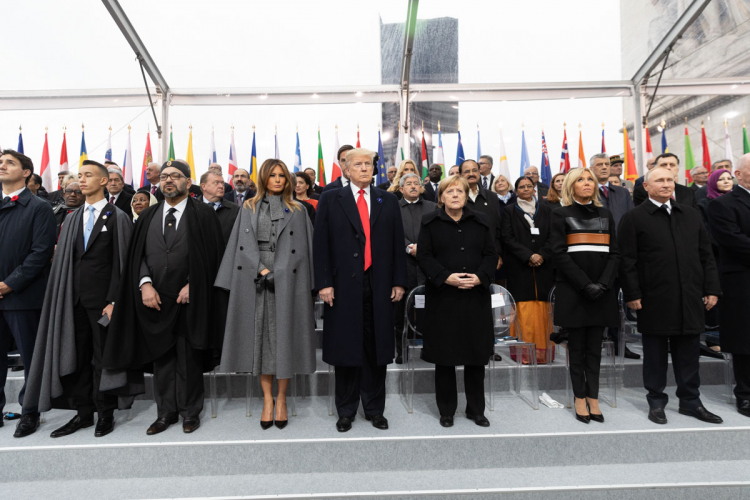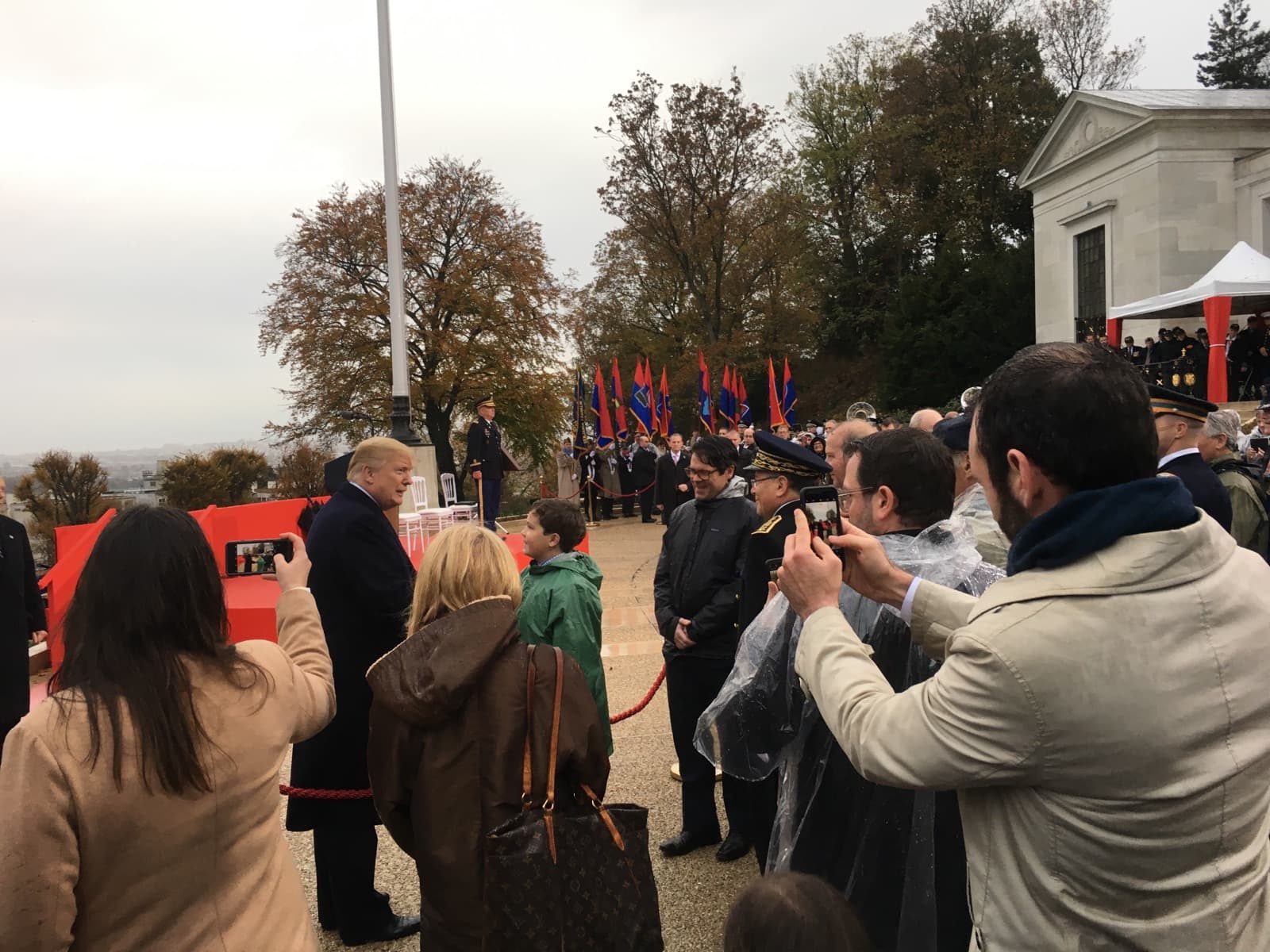"Armistice Signed, End of the War!" 100 years later

“Patriotism is the exact opposite of nationalism. Nationalism is a betrayal of patriotism. In saying ‘our interests first, whatever happens to the others’, you erase the most precious thing a nation can have, that which makes it live, that which causes it to be great: its moral values.” Such were the words of an unashamed French President Emmanuel Macron who did not think twice before taking an obvious dig at President Donald Trump in attendance in the audience.
Indeed, the American President prided himself of being a nationalist in a conference in the Oval office a month ago. France – World War I’s most ravaged battlefield - was the center of attention last weekend as it welcomed 62 of the 195 world countries to commemorate the 100th anniversary of its end. Vladimir Putin, Angela Merkel, Justin Trudeau, and Recep Tayyip Erdogan - most of the great political leaders on the planet - united in Paris on November 11 to ensure a lasting global peace. At the eleventh hour of the eleventh day, all the bells of the churches in France rang simultaneously, just like 100 years ago. Under high security, the presidents, kings, and prime ministers of the world began to walk, next to one another, on a silent Avenue des Champs Elysées. Led by a dignified and serious-looking Emmanuel Macron, they all walked as one man heading for the Arc de Triomphe where performances and personalities awaited them. Mr. Putin and Mr. Trump, for security reasons, decided to meet them directly there by car, right next to the tomb of the unknown soldier.
“This was unimaginable, even after World War I in 1918.” Francois de Rugy, France's Environment Minister, told the Peacock Plume. He continued, “In 1919, the Treaty of Versailles brought Germany to its knees because we wanted to punish it. However, we learned from our mistakes and now are able to work together even if we don’t agree on some things.”
Many heads of states arrived on Saturday November 10, as President Trump was greeted at the Elysée Palace by the French President where they both spoke to the media. The atmosphere was cold, with a charming Macron determined to get at least a sight from a distant Trump, who eventually opened up while keeping it strictly professional. A controversy exploded after it was announced that Mr. Trump would not visit the Aisne-Marne cemetery located two hours and a half away from Paris. The White House justified the decision by citing the rain as a dangerous obstacle for the President’s helicopter even though many heads of state and some high-ranking US officials visited, including Chief of Staff John Kelly. It was later announced that the American president would visit the Suresnes American cemetery to pay his respects to the fallen soldiers.
President Donald Trump meeting Matthew, a 13-year-old American who had saved up for two years to attend the centennial of Armistice Day in Paris. Image Credit: Peregrine Ollander“It was a privilege to be at the American cemetery and pay homage to the ending of WWI and the sacrifices made by so many., said Peregrine Ollander, a multimedia producer at the American University of Paris. She added, “President Trump spoke with respect about the occasion and called attention to several key audience members in attendance including the family members of military buried in Suresnes, the WWII veterans, and the US generals. WWII followed on the heels of WWI, and we don’t want to go down that road again.”
Albert Wu, Department chair of History at AUP, explained to the Peacock how the birth of many current countries and some of the great historical moments of the 20th century were part of the consequences of the Great War. “A lot of the tensions we see in the 1920s were rooted in WWI. Many political and social movements such as anti-imperialism and decolonization emerged. We can still see some echoes today as with the rise of the far right or the tensions caused by global capitalism.”
Donald Trump’s last minute gesture of remembrance for the American fallen veterans certainly didn’t go unnoticed as it happened just at the same time as the Paris Peace Forum which most of the heads of states attended, including Vladimir Putin. This debate-style forum, which aimed to continue the goal of promoting peace and tackle issues globally, was completely snubbed by Mr. Trump who directly returned to the US once the ceremony ended. In the absence of a US international leadership, Emmanuel Macron - who opened the conference with German chancellor Angela Merkel and UN Secretary General Antonio Guterres - was once again able to impose himself as a potential leader of the free world and stand for multilateralism and progressive centrist values.
“We believe that it is certainly not by adopting an 'every man for himself' approach that we will resolve global issues,” said Environment Minister Francois de Rugy. He continued, “Let it be about climate, migration, peace, economy; solutions [to major crises] are always best found through international agreements. Donald Trump defends a vision where every country does what it wants. But this, for instance, has the capacity to trigger a commercial war which we may see the beginning of, but do not know how it will end, because countries answer by retaliatory measures endlessly. All of this at the expense of the global economy and of the American economy.”
It goes without saying that peace is a process that is never fully acquired and can disappear in a split second. As Ollander mentioned it, "Despite the extreme loss of lives during the 'War to end all Wars', the world was engaged in combat again only a generation later." To keep this memory in mind and not reproduce our elders' mistakes, Professor Wu highly recommended to read Wilfred Owen poems, a 25-year-old Englishman who depicted his experience as a young soldier during WWI. He was killed seven days before the armistice.








